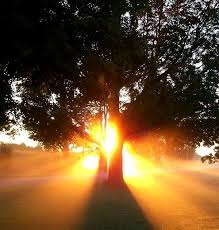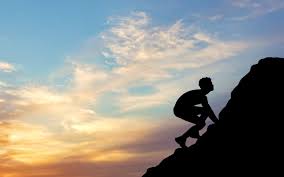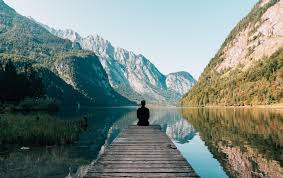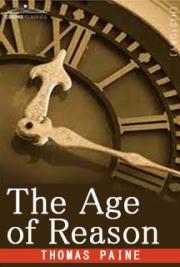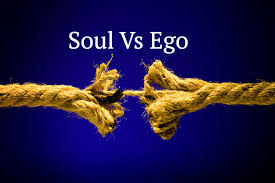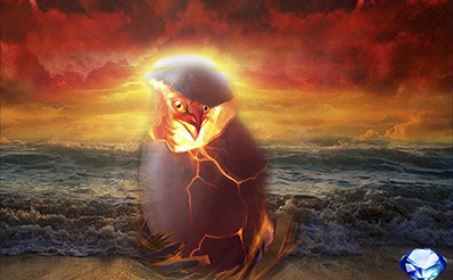Yogic insights into human psychology
Psychology with a soul
Abstract
The missing piece of the human puzzle is the soul. Without it we only skim around adjusting the different pieces of human nature, shifting the different pieces in search of the ever-elusive centre. But once the soul is discovered then the rest of the pieces start falling into place.
The missing psyche of psychology
One of the major points of divergence between yogic and modern psychology is the presence or absence of the soul or a true self behind the human personality. It is a bit ironical since the word psyche refers to the goddess of the soul in ancient Greek mythology. The word has an interesting history. According to the Greek myth, Psyche was the goddess of the soul and the wife of Eros (god of love / life). Once a mortal princess, she earned the ire of Aphrodite (goddess of passion, pleasure and procreation) since the extraordinary beauty of Psyche made mortals turn away from Aphrodite in favour of this girl / new goddess. The story, like many ancient myths carries within it the seed of a profound truth. The psychic being in man refers to the soul that is caught up in the web of mortality. Though itself indestructible, identified with the mortal body it seems to die but is actually passing through cycles of birth and death while it grows in its beauty and radiance. A moment comes when it begins to grow aware of its own truth. Being the divine element within our mortal frame, the pressure of the growing soul within begins to turn human beings away from worldly pleasures (Aphrodite) towards things that are high and true and good and beautiful. But this is no easy task. Aphrodite tries her best to resist the growing influence of the psychic being since it would mean not only the end of Aphrodite’s empire but also eventually of the gods.
This is so, as is well-known in Indian yoga, since the soul in man is not just a godhead capable of lifting human beings to heights of inner glory and wisdom but capable of making the human consciousness enter into relations with the Supreme. If it is allowed its free play then this would mean that man can become greater than the gods (and the titans). No wonder the discovery of the soul finds little or no place in certain religions (it is to be accepted as a belief-system at the most) and certainly not in mind-centric modern psychology. Perhaps one is afraid even of admitting such a possibility since it may well mean the end of an empire of mind-constructed knowledge-system (another belief-system) that encourages, or at least accepts as normal, our mortal seeking for sexual pleasure and the expression of anger, fear, ambition, lust, pride, vanity, greed and all the rest as normal! On the other hand the seeking for the soul or having glimpses of it find either no place in modern psychology or else are brazenly declared abnormal! Everything can be talked about in academic circles but the terms soul and Divine are taboo or simply mocked; at best considered an article of religious faith rather than part of our spiritual seeking and self-discovery. The resistance against the ‘Psyche’ set in motion by Aphrodite and her worshippers is still active under new names and forms.
The historical context
One such form is Freudian psychology which sees sexual desire (instinct) as the root of our impulse to live rather than the soul. It is understandable that this be so in the Western context since what has remained there of spiritual seeking is largely the shell of a religion with fixed dogmas and beliefs in which the spiritual seeking lies buried and smouldering as a thin spark under the smoke of a priori denial, doubt and blind belief.There is little left for people to choose. Climbing the rising tide of reason and science that was proving victorious over matter and making life comfortable and less painful, many chose for the new goddess of Reason and building temples and cults around it. Others chose blind religious beliefs which was the less favoured deity and soon to be cast away with the passage of time. A truce was formed by declaring religion as a matter of personal belief whereas science and reason was the goddess to be worshipped and believed in publicly and by the state. A dichotomy arose between the realm of religious thought whose birth place was originally some mystic experience and secular science. This led often to conflicts in the initial period until the religious beliefs, devoid of the spiritual impulsion, started receding and slowly getting confined to churches and monuments and festivals.
In India however there was no such conflict. Religious life was never a set of fixed dogmas for one and all. It was seen as a step towards the spiritual and the spiritual seeking was kept alive through countless saints and sages who reaffirmed the fact of spiritual experiences. The sheer volume of these experiences coming through a number of seekers and mystics would form enough empirical data for a proper scientific study. But the Western oriented approach, unable to differentiate between religion and spirituality, just washed the baby with the bath-water. In denying religion and religious thought and claiming them as products of an irrational or superstitious creedal belief, it also took away faith and aspiration and spiritual experience. Psychology has suffered much due to this discrimination (or the lack of it) giving to the students a lop-sided view of the self and world as a huge unintelligible machine running mechanically without a maker or master within it. Yet nevertheless the machine acts intelligently and works as if with an inbuilt wisdom conscious of its steps moving towards a growing perfection! The result has been disastrous to say the least.
Today a postgraduate in Psychology and Psychiatry is ill-equipped to discuss the field of spirituality. He either discards it completely without even studying it as the eighteenth century enthusiast of science did. What is worse is that he does not even recognise that he is living in some past era of science while the world is moving away from this dichotomy and human experience is turning towards tasting the fruits of spiritual endeavour. Tired of the inadequacies of a world built by reason alone with little place for deeper things, man is naturally turning towards those deeper founts of wisdom that lie concealed within the secret spaces of his soul. Apollo and Minerva are casting their masks and crude ill-fitting robes of material intellect and analytical sense-driven reason and assuming diviner forms through man’s seeking for Wisdom and Light and Truth.
This growing spiritual seeking and its pressing demand is witnessing the rise of spiritual gurus and masters, not all of whom may be well equipped to satisfy the needs of the spiritual aspirant. Some indeed may be charlatans and there is nothing surprising about it. There are charlatans everywhere, in science and medicine and art and law and economics and politics. But just as the presence of charlatans does not mean that the truth of a subject does not exist, so too the presence of fake and self-styled spiritual masters (whatever it means) does not mean that there is no truth in spiritual seeking and there are no true masters and genuine gurus. Whatever it be, the growing spiritual seeking expressing itself through things as diverse as drugs and alternate experience to neo-cults and spiritual sects is a sign of our times. Clearly the Age of Reason is coming to a close and transcending both reason and religion, a new spiritual impulse is overtaking mankind, a curve of intuition, a seeking after things that are not yet but can and must be. Thanks to the invasions of India the return gifts carried away by the colonisers was the profound wisdom enshrined in the spiritual scriptures which were too many and too varied and too deep to be resisted even by the strictly analytical worshippers of reason.
The heavenly psyche
So what really is this secret soul within us? According to the experience of countless mystics and yogis, there is indeed a soul-reality within us, a reality that is subtle and constituted of elements other than the five elements and forces constituting the material and other fields. Therefore it cannot be dissolved or destroyed by forces that destroy or dissolve the material substance or even substances subtler than gross matter, — fire cannot burn it nor the waters drench and drown it, winds dry it not, nor the weapons pierce and cleave it. This is one way of expressing that the substance of which the soul is constituted is indestructible.
It is other than the five elements that constitute all creation in the material, vital and mental worlds of existence. Or to put it in another way it is none of the matter-energy combinations that we know of. It is the stuff of pure consciousness, so to say. All our senses and natural instruments through which we perceive rather than ‘know’ things are built and organised by the five elements of nature. But the soul being beyond these cannot be perceived by those instruments that are not built to register its presence. What these instruments can register is the impact of the soul upon our nature. This does not mean that one cannot know the soul and it remains a speculation. Mystics through the world and in all ages found this secret entity by going within. What this means is that since the soul is of the same stuff as pure consciousness, one can know it only through an identification of our individual consciousness with the soul. The individual consciousness is mixed with many layers on the surfaces of life like the foam and froth upon the sea. But if we go deep, deep down into the core of anything, be it a seed or a drop of water or an atom or within ourselves, we will eventually touch this fundamental Reality by which and on which the warp and woof of creation hangs.
While science takes the longer circuitous route of going deeper and deeper into creation, Yoga takes the other route of going deeper and deeper within oneself. It may be noted that the two processes are not exclusive but complimentary to each other. The only difference is that science as it is today tries to go deeper through instruments invented by the human mind, which itself is a power of nature and built by nature using the five elements. Yet the mind has this possibility within it to soar beyond what constitutes it by a process of concentration. When this concentration is practised within through the subjective spaces of our being then we arrive at the discovery of our inmost individual soul. It is the proper gateway to the universal consciousness since the individual soul is only a portion of the universal, one in essence but different in terms of its manifesting power.
Each individual soul brings forward one or another aspect of the cosmic Divine into play. Its experiences through life, or rather lives, are meant as feeders to help the soul grow into its full potential which is one or a number of divine qualities it is meant to manifest. Since such an evolution is not possible within the confines of one life given its many limitations, the soul must go through many experiences through a range of lives with varied experiences, which it faces and absorbs with the unique angle of developing and bringing out the latent divine potential within it. Since the Divine is infinite and therefore infinite are ‘His’ divine qualities, there are many souls wherein each represents a centre to bring out one or another of these divine qualities while keeping the others in the background.
This is our true individuality and not the ego-self wherein differences lead to fragmentation and division and conflict. The differences of potential and degree of development of the individual soul however leads to complementariness rather than division since each soul is aware within its core that it is part of the universal and the Divine Whole. The soul is the first, the primary nodal point, the junction of the One Consciousness and its manifold diversity. To discover one’s soul facilitates the discovery of the cosmic Soul and the soul in all things. This means a new relation with creation where unity and diversity becomes tangible, possible and a self-existent truth. In fact it is the only way to discover true and lasting unity.
In search of the soul
In other words the true self, the soul, is covered by the ego-self. The ego-self is often compared to the outer crust of a seed. This outer crust is needed for some time as a protective coating that allows the inner part to grow quietly within without coming much into notice of the world forces that stalk the growing soul. The ego-self serves as the initial protective layer. During this phase of development stretching through lives, the surface personality that we ignorantly call ourselves is unaware of any soul within. Nor is there any inclination to discover it. One is generally busy facing the strokes and blows of life and learning from these things. Slowly the inner seed begins to ripen. It is then that the blows increase as if to break the outer coat and release this seed within. Even if there are no blows the individual whose soul-moment is arriving begins to feel stifled within for no apparent reason. He feels a stranger to this world and seeks a meaning in all this drama. He raises uncomfortable questions that challenge his belief systems, whether the dogmas of formal religions or the worse rigid articles of ideological beliefs. When this happens then the time of soul emergence is closing in.
Next comes the moment of the unexpected. Something happens, generally an outer event that serves only as an excuse or a trigger, and our being takes a new turn. We begin to seek spiritual truths even though not necessarily in that name. We are drawn towards high and beautiful things. A faith and intuitive sense of the Divine, that transcends belief, awakens. Sooner or later we find ourselves undertaking some kind of an elementary practice and exploring the far limits of our consciousness. A new journey has begun and we have embarked ourselves in search of our soul.
This journey is very different from all that we have known so far. We are no more interested as much in outward things that engage the senses but are drawn inward to find our core. This process of turning inwards is called interiorisation. Meditation, concentration, contemplation are some well-known processes that help us turn inwards. A wider and more integral way is the triple path of the Gita, or desireless action done in a state of remembrance and offering to the Divine. There are other ways that utilise special and occult means to break the barrier between our outer self that has stuck so far to the crust and coat of the seed. But the essential thing is to turn inwards in search of the soul rather than remain busy responding to each suggestion that flows through the brain and every sensation that knocks at our door. Quite naturally such individuals prefer isolation though as they advance on the path this need is replaced by an inner isolation which one can have even in a crowd or on the battlefield.
The process of this interiorisation is again very simple to understand though not so easy to start with. Normally our consciousness is entangled with the instruments of nature since that is part of the process of creation. Without this support of consciousness the universe will cease to exist. It is further spread out through the doors of the senses and the mind into all kinds of external objects to which we are tied through attachment, seeking for pleasure and even by sheer force of habit. Yet this consciousness that is thus tied and entangled can be withdrawn to a large extent while just enough is left to keep the basic functioning of life intact.
Imagine, for example, that one has huge heaps of money stored and stacked at a place. Now this much is not needed for the daily maintenance or needs of life. Yet it is stacked up and piled up due to attachment, habit and pleasure. In the bargain we cannot use this money in better ways. It is simply not available. Yet much of it can be easily withdrawn and our daily needs will be well looked after. The same applies to energy and consciousness. We can either waste it or simply hoard it for outer things, objects of pleasure or trying to satisfy the ego and desire-self. By doing so we remain tied to the prison-house of nature. We remain tied to the ever-changing phenomenon and our habitual reactions of pleasure and pain to the changing situations of life. But since deep within we are born with certain deeper needs such as of Peace, Freedom, unchanging Bliss, unmixed Truth, unconditional Love, we begin to suffer after a certain period of initial enjoyment of these surface things.
Soul-suppression and soul-release
In other words there is a kind of suffering that humanity is increasingly experiencing and it is the stifling and suppression of their soul’s aspiration and cry. This is so because human evolution has reached a point wherein the soul having gone through experiences of many lives is getting ready to lead the march of mankind to its next step. Until now it is the mind and the vital parts that have been the leaders. Mind has now entered a fast forward pace leading soon to its exhaustion and arriving at its summit possibilities. Already a section of mankind is experiencing this ceiling of uncertainties that the mental evolution has struck.
Also a lop-sided mental evolution has jammed the doors of the heart and many human beings suffer this deficiency of love (for want of a better term) in their lives. The mind needs now to break through this ceiling and arrive either at the home of intuition or open the long sealed heart cave and following the light that resides there swim through the streams of sweetness and love until we reach its very source in the soul. The two routes are in fact complimentary since the closer we get to the soul the more we open the doors to intuition. Equally, the more our discursive mind becomes quiet and the more intuitive we become, the more we get closer to our soul. Our soul hides behind the surface noises that drown our inner being. Its light is unable to shine upon our life since there is too much turbulence, agitation and restlessness. All this storm and noise that drowns the soul’s voice and does not allow the inner light to surface arises primarily from the desire-self. This and not any arbitrary and artificial morality of reward and punishment by some primitive God is the reason why yoga trains and teaches us to quieten the cries of desires.
The yogin also does not much waste his time in mental debates and discussions that leave us and others as unconvinced as before. If you ask a yogin to discuss logically whether there is a soul or not he may simply say try to find it out for yourself. This is another reason why we do not find much talk about it in academic circles. Of course one can logically prove the existence of a soul (and logically disprove it too!) but such logically held or refuted beliefs are like tilling a barren soil or planting an artificial flower with little real outcome. It is the ground of various theologies, ideologies, religions and cults of various kinds. Yoga does not seek to convince the mind, knowing well that it is next to impossible. Instead it appeals to a deeper intuitive sense and to our intrinsic faith and then simply asks us to ‘go ahead and find the soul.’ That is why we find little or no mention of it in theoretical discussions, though a more practice-oriented psychology has begun to admit the possibility with good results. The evidence exists in the testimony of countless mystics. Now we have simply to go ahead and try to find it.
The new normal
In summary we may say that a lot of psychology grew up while trying to understand mental diseases or psychopathologies. Freudian psychology, even Jungian is almost exclusively based on a study of abnormal phenomena. This is somewhat like understanding normal human physiology by studying diseases. Here too, much of our interest in understanding the functioning of the human body started due to an effort to understand diseases. A better way of course would be to study normal human beings, at least the so-called normal and try to discover their inner life in all its complexity. This at least is the method adopted by yoga. Besides there are two kinds of abnormalities, – one that falls towards the animal side of our evolutionary past. Another that swerves towards the godlike future we are yet to become and which is possible. Right now our normal is in fact largely normative. It depends a lot upon how most people experience life within their band-width.
Yogic experience however affirms that there is not just the normal and the abnormal but also the normal and the supernormal. Rather it divides the human experience into three categories, — the subnormal that is closer to early humanity driven largely by subconscious instincts and impulses; the normal with the play of reason and a more rationally oriented humanity; and finally, the supernormal centred on intuition. It is like an ascending and developing stairway through which man climbs out of the animal towards its inherent divinity and as yet unclaimed divine nature.
Where does the soul fit in all this? Well, the soul is the real adventurer that journeys through the several stairs constructed by the creatrix consciousness for the ascension of the soul from its seed state towards the fullness of its divine blossoming. Implicit within this is the assumption borne by repeated experience of mystics that man’s true nature is essentially divine. This true nature is embedded within his soul, like an imprint from some divine realm that it carries as its roadmap or scroll of destiny. To bring out this true divine nature from within the soul is not only the radical cure for the evils that plague us individually and collectively but also the one true and lasting way to achieve fullness and integration, wholeness and happiness in the deepest sense. It is not some superstitious mumbo-jumbo of the past but the ascending evolutionary curve of the future. Out of our mind’s grey hues and momentary signal flares in the thick night of ignorance we must emerge into the dawn of the gods.This is our true and inevitable destiny. The sooner we recognise it and work towards it the better it is for the individual and the human race. Otherwise we will continue moving in endless circles of hope and despair, tinkering and painting and repairing the surfaces of life while its depths remain weak and unhealthy. Or else we simply let evolution go past us and hope that out of man a new being or a new race may arise, a race governed naturally by intuition and constituted of beings conscious of their souls.
Dr. Alok Pandey, an editor of NAMAH and a member of SAIIIHR, is a doctor practising at the Sri Aurobindo Ashram.
Share with us (Comments,contributions,opinions)
When reproducing this feature, please credit NAMAH,and give the byline. Please send us cuttings.

